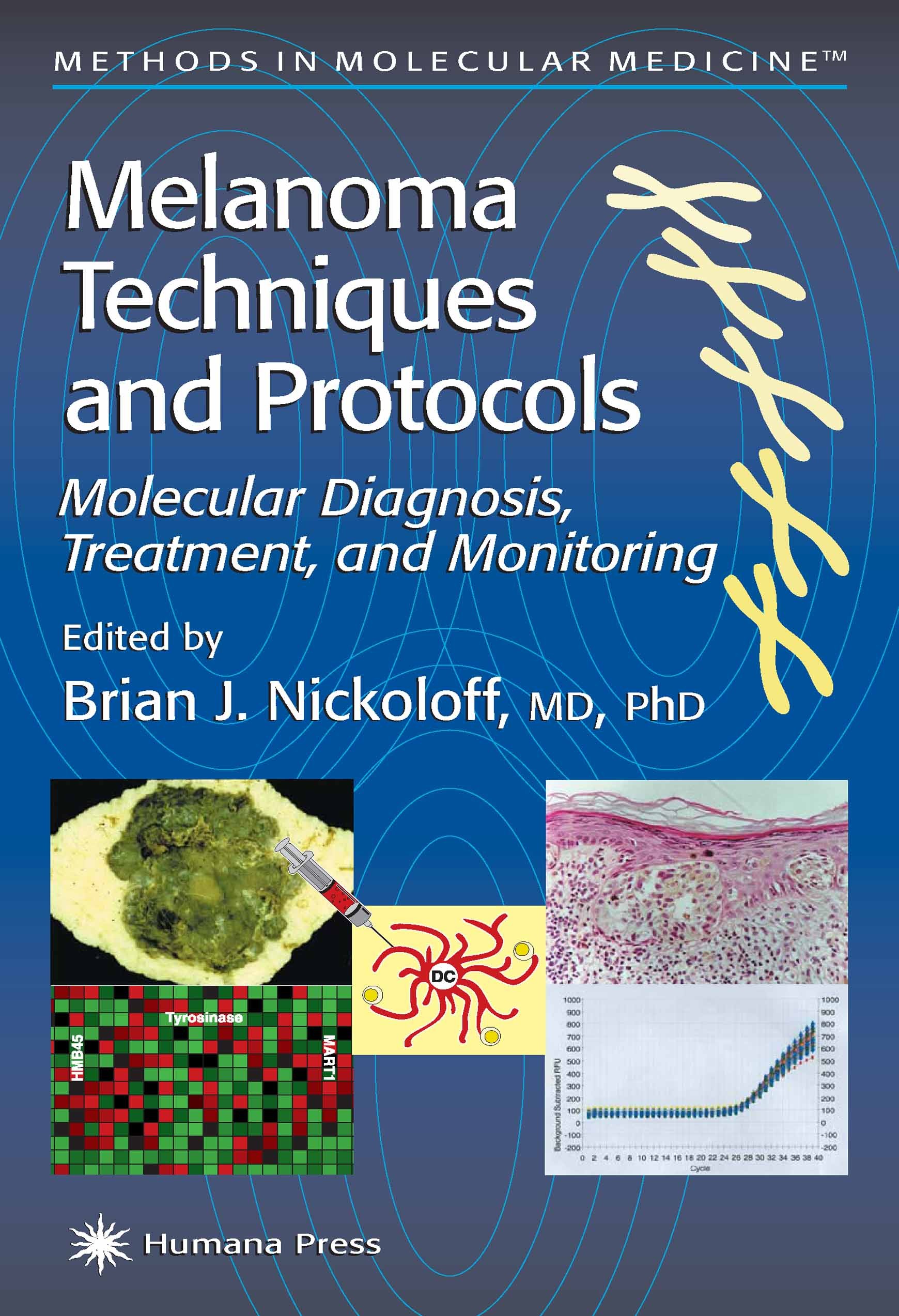| 书目名称 | Melanoma Techniques and Protocols | | 副标题 | Molecular Diagnosis, | | 编辑 | Brian J. Nickoloff,Leroy Hood (President and Direc | | 视频video | http://file.papertrans.cn/631/630299/630299.mp4 | | 概述 | Includes supplementary material: | | 丛书名称 | Methods in Molecular Medicine | | 图书封面 |  | | 描述 | This book is about melanoma—its biology, immunology, and pathology, as well as the initial use of powerful genomic tools to study its fundamental mole- lar and genetic characteristics. The study of cancer will be profoundly impacted by the Human Genome Project. I would like to discuss some of these changes. The first draft of the human genome sequence was announced in June 2000, and we have just scratched the surface of the changes it will engender in medicine. A relevant question is what are the long-term effects of the Human Genome Project for medicine? I would argue that there are three, and each of these three point toward the view that systems biology will dominate biology and medicine of the 21st century. First, the Human Genome Project introduced a new type of s- ence—discovery science. Discovery science takes a biological system (e. g. , the genome) and defines all of its elements (e. g. , the sequences of the 24 human ch- mosomes). Thus, it creates a rich infrastructure from which the classical hypo- esis-driven science can be done more effectively. The effective integration of discovery- and hypothesis-driven science is a key for systems approaches to bi- ogy and medicine | | 出版日期 | Book 2001 | | 版次 | 1 | | doi | https://doi.org/10.1385/1592591450 | | isbn_softcover | 978-1-61737-134-9 | | isbn_ebook | 978-1-59259-145-9Series ISSN 1543-1894 Series E-ISSN 1940-6037 | | issn_series | 1543-1894 | | copyright | Humana Press 2001 |
The information of publication is updating

|
|
 |Archiver|手机版|小黑屋|
派博传思国际
( 京公网安备110108008328)
GMT+8, 2026-1-8 17:59
|Archiver|手机版|小黑屋|
派博传思国际
( 京公网安备110108008328)
GMT+8, 2026-1-8 17:59


